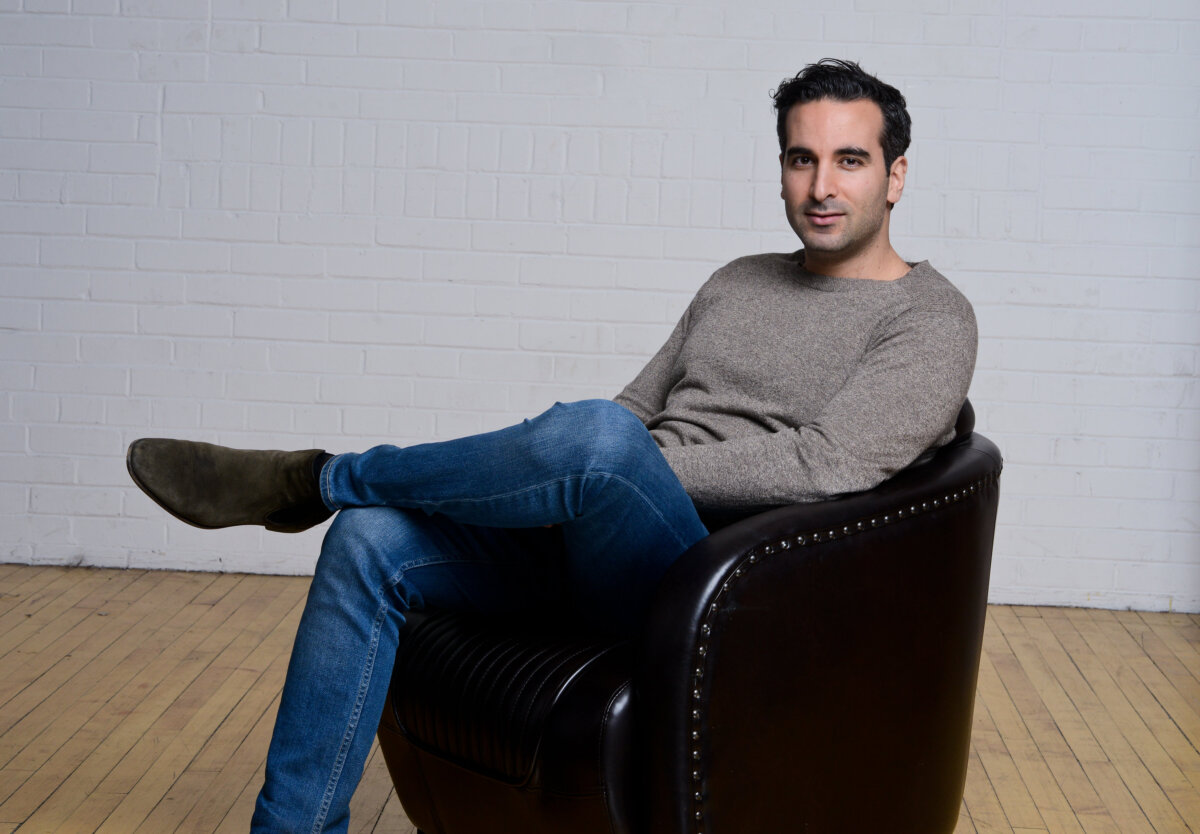Photo: Ghassan Halazon, Founder and CEO of EMERGE Commerce Inc.
The COVID-19 pandemic has undeniably wreaked havoc on the business community, but one area that has managed to thrive amidst the chaos is e-commerce. With the closure of physical stores and consumer habits shifting away from traditional brick-and-mortar consumption, online shopping has been there to fill the void.
E-commerce has been on an upward trajectory that has only been accelerated by the pandemic. No one understands this better than Ghassan Halazon, founder and CEO of EMERGE Commerce, a leading network of niche e-commerce sites (including UnderPar, WagJag, JustGolfStuff, and Shop.ca) providing limited-time offers to 2.3 million members across North America.
With the recent announcement to go public on the TSX Venture Exchange (TSXV) in the coming months (Reserved Ticker TSXV: ECOM), EMERGE was able to raise $9 million in the midst of the COVID-19 pandemic entirely through a digital format this summer by embarking on a virtual investor roadshow. It raises the question—is the traditional meet-in-person fundraising campaign trail now a thing of the past? Halazon has a few thoughts on the matter.
What is EMERGE Commerce as it stands today?
EMERGE is an acquirer and operator of niche e-commerce sites across North America. We consolidate our portfolio companies under a universal platform and playbook enabling them to share everything from technology to teams and benefit from cross-selling opportunities and partnerships across the network.
We’ve been in business for the past four years and have amassed 2.3 million members that we connect with our 10,000+ merchant partners ranging from golf experiences and products to groceries, essentials, and family offers. Our philosophy is to acquire proven brands and customer databases, partnering with established founders, rather than building from the ground-up. We believe this is a far more cost-effective way to arrive at profitable scale.
Our philosophy is to acquire proven brands and customer databases, partnering with established founders, rather than building from the ground-up.
Why did you take a portfolio approach rather than focus on a particular vertical as is common in e-commerce?
During these uncertain times, our diversified e-commerce portfolio has been the key to shielding us against the pitfalls of having a one-dimensional business model. As a result, we’ve been able to double down on COVID-resilient inventory, such as frozen meats and sanitizers, essentially repurposing our virtual shelves overnight to match consumer demands, in such a way that would not be possible had we only offered a single vertical, for example, a travel site or a restaurant reservations app.
Why do you think most e-commerce companies are not diversified?
There’s a tremendous focus by venture capital (VC) backed companies to raise boatloads of capital on a mission to become a ‘category leader’, often accompanied by exorbitant losses along the way. By design, EMERGE has chosen a different route, focusing on a carefully crafted, profitable from the ground up, diversified model, partnering with long-term entrepreneurs, family offices, and Bay Street executives offering patient, supportive capital. We have over 125 investors in North America and internationally. By default, a diversified, bottom-line focused business is not a sweet spot for VCs.
Earlier this year, you planned to embark on an investor roadshow. What were the initial goals and how did COVID-19 alter your plans?
Earlier in the year, we engaged Canaccord Genuity, the leading technology bank in Canada, along with our early partner, Gravitas Securities, as well as Haywood Securities, to formally conduct the roadshow in Q1. The plan was to do a pre-IPO round and raise capital for the last time privately ahead of a public listing. When COVID-19 first hit in mid-March, the e-commerce space quickly emerged as one of the unequivocal COVID-19 winners across the business world. We noticed the accelerated metrics across our online properties and so did investors, so, we decided to go ahead with a different type of roadshow—a virtual roadshow.
With that in mind, what gave you the confidence to proceed with this virtual investor roadshow so aggressively?
First and foremost, a macro trend was recognized. There was this undeniable moment in time where e-commerce had made its grand entrance onto the global stage. The shift to online had been brewing for years, but never more evident than in the weeks and months following the lockdown. For example, our grocery vertical, normally a steady 20 percent year over year business, suddenly shot up by 300 percent. Couple that with a buyer’s market like we haven’t seen before in our lifetime, as an acquisitive company, we felt it was the perfect storm to go to market, from home.
What was the virtual roadshow format like? Anything challenging about it?
We relied on our banking partners to organize what ended up being over 50 meetings in 10 business days spanning across Canada, the US, Asia, and the Middle East. The virtual roadshow was set up in 30- to 60-minute time slots. While it might sound trivial, I would say the main challenge was keeping a clear head and enough water nearby for 7-10 back to back meetings a day. That’s a lot of talking, and not enough breathing!
The entire roadshow was done without a single flight, hotel room, or meal.
What does the experience teach you about the times we are in?
When such meaningful capital is being raised virtually, it really changes the fundraising game. The entire roadshow was done without a single flight, hotel room, or meal. We successfully raised $9 million, far exceeding our $5 million base target. I think our success here is a reflection of not only the times but also the unique opportunity that EMERGE presents for investors looking to participate in early-stage e-commerce across various niches at once.
How important do you think it is to have the person-to-person meeting with investors in light of this? How do you think the culture around raising investor capital will change moving forward?
Broadly, I believe the vast majority of in-person investor meetings are a thing of the past, particularly for ones that require flights. That said, for major strategic investors, I would imagine the business community would still favor face-to-face meetings, especially when the stakes are high. Notwithstanding, there is just an efficiency factor, both time and money, that is very appealing with these virtual meetings, although I must admit, steaks and wine over a Zoom ‘closing dinner’ just don’t quite taste the same!
How would you say your experience with investors has been different in the various growth stages of your company?
By default, investors will always find something to pick on. Early on, you have nothing to show for, and when you actually do, it becomes a valuation discussion of whether you can keep up the growth and whether your business is worth the multiple you’re asking for. In the early days, it was much more difficult because there simply was no infrastructure, no team assembled, and no track record of completing and successfully integrating acquisitions. Storytelling is key but at the end of the day, nothing shows better than real results, real growth, and of course, profitability. Believers tend to follow, and thankfully, we are starting to see that.
What have been the key takeaways from the virtual roadshow? What advice do you have for others that are contemplating a similar path?
My key takeaway is virtual roadshows are here to stay for the foreseeable future. We just raised $9 million over Zoom and conference calls. Clearly this format works and it’s more efficient by saving time, money, and resources. My advice to others is, raising capital is binary, you either walk away with the funds or you don’t. Investors have proven they are willing and able to write cheques after a 30-minute online session if you show up with substance. As the old saying goes, ‘follow the money’, and right now, the money is clearly online.
Investors have proven they are willing and able to write cheques after a 30-minute online session if you show up with substance.
You’ve raised $9 million from this round of fundraising. How do you plan to deploy the capital?
The capital raised will primarily go towards future acquisitions in the works. We expect to complete another acquisition, our 5th overall, this Fall. We also plan to make additional investments to ensure our platform and team are well-positioned for our next wave of growth, as we set out to exceed $100M in gross sales over the next 12 months.
What has the pandemic taught you about business and generally about the kind of company you want to build?
First and foremost, we’re coming out of it as one team. We’ve been fortunate enough that we haven’t had to make any mass layoffs or any major structural changes. It has truly been a pleasant surprise that our team members have managed to work remotely so smoothly. For many of our employees, it has largely been a positive experience, especially for those with families around and long commutes.
As an operator, a key learning during these times of chaos is that absolutely everything is negotiable—protect the house, that is your number one job as an operator in times of war. Every single expense and contract, no matter how small or seemingly set in stone, has to be tackled and renegotiated. The good news is for businesses who are fortunate enough to survive this crisis, that accomplishment in itself signals resilience and agility to investors, so remember that next time you dial into your next meeting!













